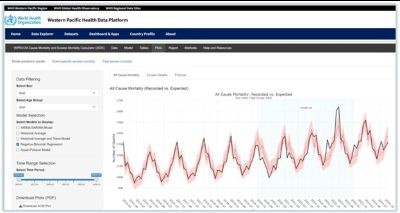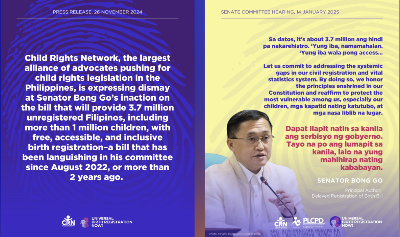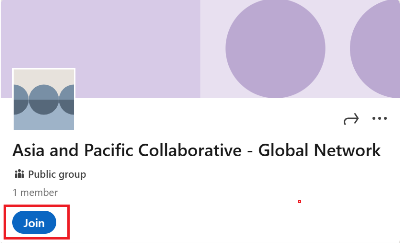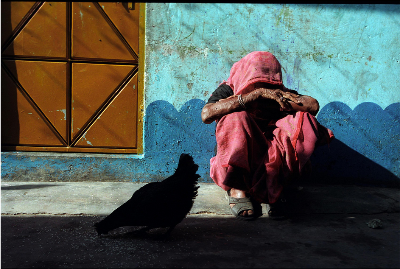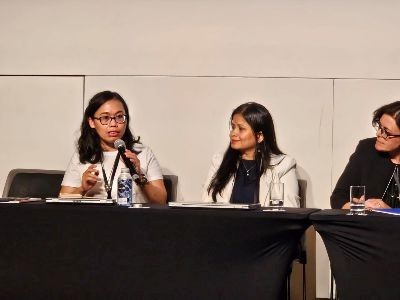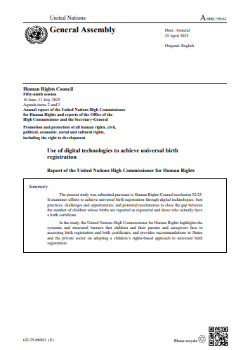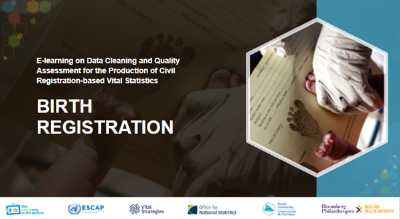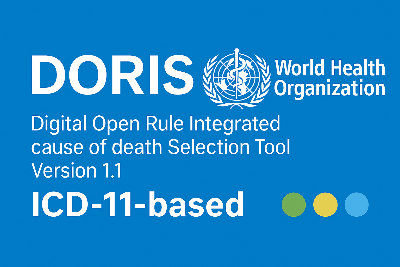CRVSNOW, the first commercially available cloud-based Civil Registration and Vital Statistics System with the largest installed base in the world, is being offered for free to low income countries.
Object Consulting recently implemented CRVS Solutions’ system, called CRVSNOW, in Victoria, Australia for 6.3M citizens. With this most recent success, CRVSNOW manages the life events for 14M citizens, handles 16,500 users, 123M vital records and prints 880,000 certificates a year. CRVSNOW is the most modern full-function commercially available cloud-based CRVS system in the world.
CRVS Solutions is now offering the latest release of CRVSNOW free to low income countries to support the modernization of their CRVS systems. CRVS Solutions’ offer includes a free test system and no mandatory support fees so interested countries can evaluate CRVSNOW online at no cost.
“Modern electronic systems that can link civil registration with civil identification system, particularly while assigning unique identification numbers to individuals at birth and with other information systems, can be a key factor in improving the access of these individuals to critical public services such as education, health, social welfare, and financial services,” said Dr. Samuel Mills who leads the implementation of the World Bank Group (WBG) 2016–2030 Civil Registration and Vital Statistics (CRVS) Action Plan and the delivery of the state-of-the-art, comprehensive CRVS eLearning course.
Mills negotiated with CRVS Solutions to make CRVSNOW available to interested low-income countries for free. However, Mills emphasized that the WBG does not endorse specific vendor products; WBG encourages countries to assess several products to make informed decisions on the best overall value for money while considering quality, cost, and other factors as needed.
CRVSNOW has three main modules: 1) Core for staff and registry operations; 2) eRegistry – user interface and web service interfaces for hospitals, funeral directors, marriage celebrants and other stakeholders; and 3) ePublic – for all citizens to access the services of the registry e.g., parents registering the birth of a child. All modules are free for Low Income Countries.
Several countries are implementing a social registry for social safety net programs. A Social Registry is key to implementing social programs and enabling the delivery of successful outcomes consolidates the outreach, registration and assessment of needs and conditions of populations likely to be targeted by social programs. CRVSNOW is a platform to support any registry including a Social Registry.
“CRVSNOW is now proven in the two largest states of Australia with over 14M citizens. As part of our corporate social responsibility policy, we are very pleased to offer CRVSNOW to UN designated Low Income Countries for free to help them improve registration of vital events and contribute to furthering the UN’s SDG’s. Our team is experienced and ready to assist Low Income Countries to adopt CRVSNOW.” said Graham Jones, Group Business Development Manager for CRVS Solutions.
CRVSNOW can be customized to suit local context. The user interfaces for the system use RESTful APIs to communicate with the application servers. The user interfaces are written in Angular which is very flexible about formatting and style which allows a considerable degree of control, but CRVS Solutions can provide the source code for specific forms to allow countries to make their own version. Countries can integrate their own user interfaces into the API if desired.
CRVSNOW has an offline feature called the Field System. The Field System is a complete CRVSNOW system on a laptop. It is designed to be taken into the field where there are no network connections such as remote villages or islands. Because it is a complete system and it contains the registry (encrypted and with additional security), registry operations such as entering notifications, producing certificates and searching the registry can be conducted in the field with no Internet connection. Any notifications that are entered are saved in a “draft” list and then later submitted to the core when the Field System is reconnected to the network.
Jones added, “Whilst CRVSNOW was built for the high end needs of a high-income country, every country can use these features to improve data quality, make registration more accessible to every citizen and gain the cost benefits of cloud computing. Low income countries can start off using the core functions and then later use the high-end features without incurring any additional license costs.”
Further details, videos and downloads are available through the website at crvsnow.com.



